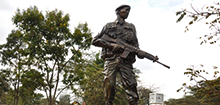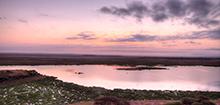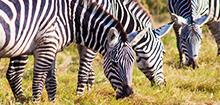Claims by a section of the media in the recent past that there are deliberate moves to separate elephant calves from their mothers to confine them to Animal Orphanages for commercial gain have drawn the attention of Kenya Wildlife Service (KWS). Consequently KWS would like to state the following:
Elephant orphans or abandoned claves are stumbled on or found opportunistically. Kenya has never had any case where elephant calves were deliberately separated from their mothers for rearing by humans, as this would be both unethical and illegal.
KWS sanctions all cases of elephant calves that are orphaned or abandoned for captive care. Due process is followed before a decision is made to have a calf in distress put in an orphanage. There are standard operation procedures that are strictly adhered to in such an undertaking. Thus no individual, entity or institution can legally collect orphaned elephant calves without KWS authorizing it.
KWS gives first consideration to trying to reunite mother with calf, unless the mother died from one or other causes. Rescue is usually the last resort that is undertaken to give the orphan a second chance to live because without the mother such a calf faces insurmountable challenges to survive.
The Standard Operation Procedures ensure that young orphaned or abandoned animals found in distress are rescued in accordance to existing laws and regulations and that they are provided adequate care after rescue. The procedures cover all activities from the time an animal deserving rescue is reported up to the time the animal is received at a rescue centre.
KWS can account for all orphaned elephant calves that have been rescued for captive care so far. Elephant orphanages are not enterprises. They were established to nurture orphan elephants and eventually experiment releasing them to the wild when they are old enough to fend for themselves and protect themselves from enemies.
We wish to therefore advise that the public should seek confirmation from KWS on information relating to any cases of animal movement that comes to their attention.





